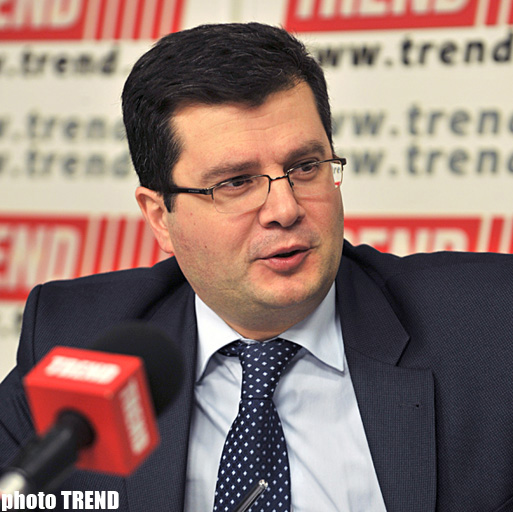Azerbaijan, Baku, March 12 / Trend E.Tariverdiyeva /
Statements President of Armenia Serzh Sargsyan made, serve purposes of domestic propaganda and are designed for self-promotion, Foreign Ministry spokesman Elman Abdullayev told Trend on Monday, commenting on Sargsyan's statement at the 13th congress of the ruling Republican Party.
"Serzh Sargsyan can not accept his diplomatic blunders and failures and tries to compensate this by such kind of destructive speeches aimed at wrecking the peace process over Nagorno-Karabakh, and tries to continue and justify his militaristic expansionist policy," said Abdullayev.
It seems that with such empty speeches Sargsyan is trying to look as a leader, Abdullayev said.
"However, it is time to realize that a leader is one who leads his country to progress, rather than to economic stagnation and demographic crisis, which engulfed Armenia due to short-sighted policy of the country's leaders," Abdullayev noted.
Serzh Sargsyan, speaking at the congress, said that Nagorno Karabakh was, is and will remain Armenian and that the Armenian Republic provided and will continue to provide comprehensive assistance to political and economic development of the breakaway region.
The conflict between the two South Caucasus countries began in 1988 when Armenia made territorial claims against Azerbaijan. Armenian armed forces have occupied 20 per cent of Azerbaijan since 1992, including the Nagorno-Karabakh region and seven surrounding districts.
Azerbaijan and Armenia signed a ceasefire agreement in 1994. The co-chairs of the OSCE Minsk Group - Russia, France and the U.S. - are currently holding peace negotiations.
Armenia has not yet implemented the U.N. Security Council's four resolutions on the liberation of the Nagorno-Karabakh and the surrounding regions.






